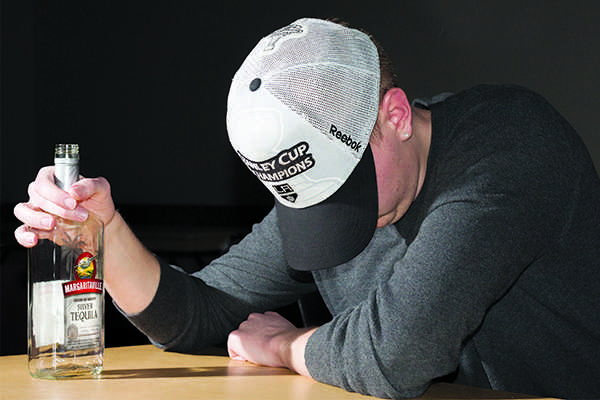Last semester, students requested the administration implement a “medical amnesty policy” to ensure that students in danger of overdose from alcohol or other narcotics seek medical help without fear of being penalized for their behaviors.
According to a press release, ASNMU received this proposal and unanimously promised to advance the policy. ASNMU President Katarina Klawes presented the policy to the Board of Trustees Dec. 12, 2014, when the board responded in favor to the proposal.
NMU President Fritz Erickson voiced support for the policy and said the university plans to move forward with implementation in the fall 2015 semester. In 2012, the Michigan Congress unanimously passed legislation removing penalties to minors in possession of alcohol when seeking help for their condition. NMU’s chapter of Students for Sensible Drug policy approached ASNMU about medical amnesty in the fall hoping that NMU catch up to speed with state law.
Mitchell Sevigny, director of external affairs for ASNMU, advanced the medical amnesty proposal in the committee.
“Let’s say there’s an alcohol related emergency on campus, according to Michigan law they will be technically in the clear,” Sevigny said. “They will get the treatment they need and the police will talk to them and there won’t be any minor in possessions filed. But then they’ll come back to their dorm room and they’ll have all sorts of stuff from the Dean’s office. They will have a write-up, they may be put on probation or have to go to a student hearing. Those university barriers may prevent someone from going to get medical help.”
Nolan Craft, president of NMU’s chapter of Students for Sensible Drug Policy, said students using pills like Adderall regularly overdose in excessive amounts or may be in danger after using alcohol. To Craft, that individual’s friends are less likely to call an ambulance if they fear academic and legal ramifications could result from a blood test.
“When you make a bad decision, you shouldn’t be punished for making a good decision,” Craft said. “We’re trying to potentially save lives with medical amnesty.”
Lenny Shible is a specialist at the Health Promotion Office at the University Center. As a health specialist, he provides a non-judgmental space for students fearing that they or friends have drug or alcohol abuse problems.
Schible said that any opportunity to help students is one worth pursuing, but that logistical issues may emerge after implementing the amnesty policy, particularly where non-alcohol substances are involved. Marijuana, for example, may be laced with addictive or severely harmful chemicals like pesticides, despite the increasingly common perception of pot as benign.
Schible wonders what other narcotics apply to medical amnesty. Marquette’s burgeoning meth problem may present gray area for prosecution, though he would not speculate on student use.
“Based on the way our society and culture tend to separate alcohol from all the other drugs, my guess is that it would be an entirely separate issue with drugs like methamphetamine,” Schible said. “Pills have a highly addictive potential, especially if you combine pills with alcohol. My sense is they will probably need to take a look at that when they draft the rules. Someone looking at that policy needs to take a close look at if an overdose involves pills. What if an overdose involves some other type of street drug?”
Sevigny hopes to see amnesty applied across the narcotic spectrum, including meth, heroin and other drugs seen as social scourges. He adds that the university will still have protocol in place for the emergencies, including resident advisors written reports and potentially consult with the Dean of Students office, but that concern for student health will be improved. This policy, according to Sevigny, is to ensure decreased substance abuse rates on campus.
According to Craft, hundreds of schools across the country have medical amnesty policies in place including Michigan Tech, Michigan State University and the University of Michigan. Sevigny said these schools heavily promote amnesty on their campus.
Sevigny echoes Craft’s point about controversy surrounding medical amnesty.
“It is controversial in that some people might say it promotes underage drinking,” Sevigny said. “Every piece of research shows that there is not a rise in underage drinking, but there is a rise in calls to 911, which is the whole point.”






























